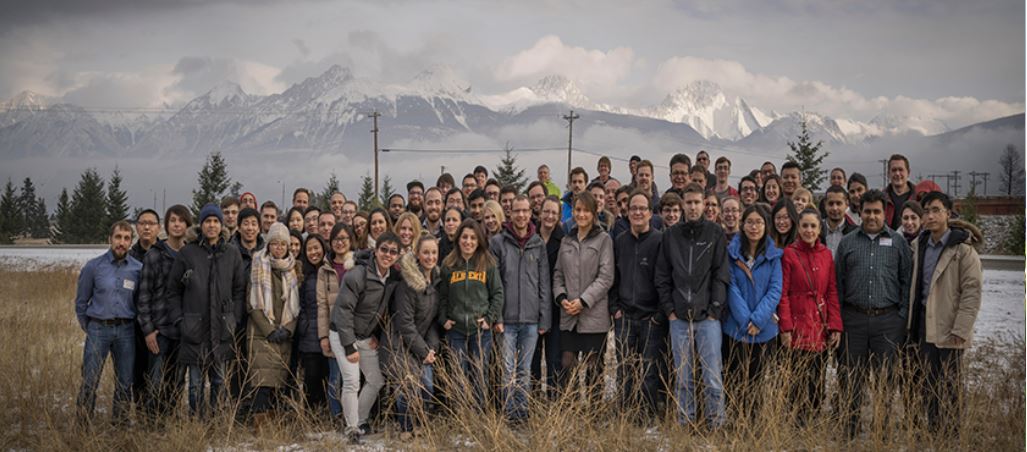
Alberta / Technical University of Munich International Graduate School for Hybrid Functional Materials (ATUMS) team met again in November 2017.
In the era of social media and fake news, the art of communicating science is becoming increasingly important in the eyes of scientists.
For graduate student Alyx Thiessen, the value of effective science communication is twofold: working with other disciplines and industry, as well as making science accessible to a mainstream audience. Thiessen is a student in the ATUMS program at the University of Alberta, also known as Alberta/Technical University of Munich International Graduate School for Hybrid Functional Materials. The program is funded through the NSERC Collaborative Research and Training Experiences, one of the core functions of which is to create industry-ready grads who are well versed not only in sound research and scientific practices but also the soft skills to help communicate the importance of their research and science to the world.
"While it is great that we can communicate with other scientists using the proper terminology, it is equally as important that we can communicate our research and important findings to everyone, scientists or not," said Thiessen, whose research is focussed on the possibility of using silicon nanocrystals for magnetic resonance imaging contrast agent.
So just how should Thiessen begin explaining her complex research to a non-scientist? To find out, she asked for help from one of the best science communicators around. In conjunction with the Department of Chemistry, ATUMS presented Jay Ingram, Faculty of Science alumni and former host of The Daily Planet and Quirks and Quarks, for a workshop on communicating science to the general public.
Ingram's talk gave students in the ATUMS program as well as other Department of Chemistry graduate and undergraduate students his best practices and strategies for science communication in our modern world.
"Ingram has been extremely active in bringing science into the homes of people who may not have been exposed to it otherwise," said Thiessen. "It is extremely cool that he is a UAlberta alumni as well."